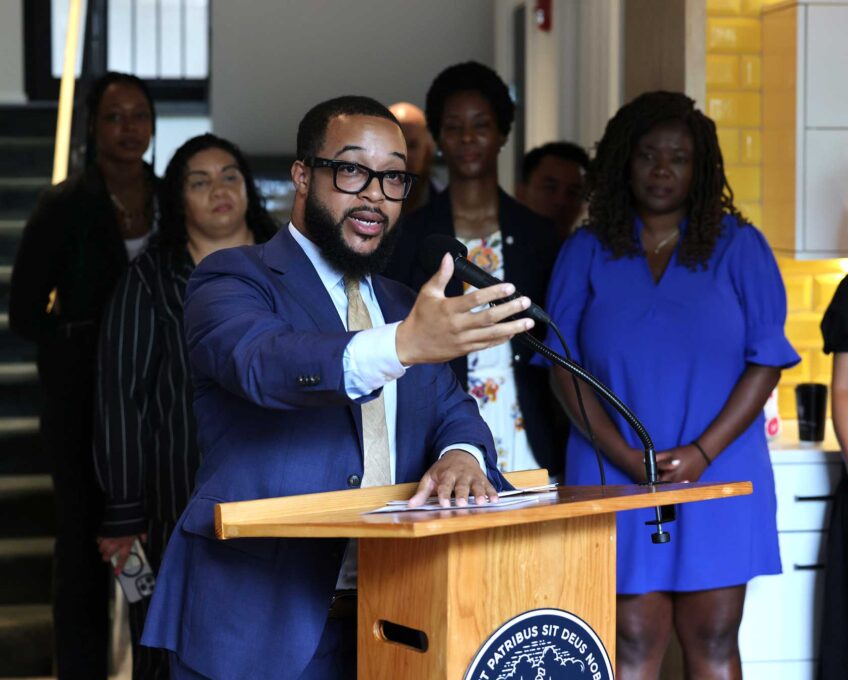Making certification work for your business
Certification helps minority and women-owned businesses secure city and state contracts
Certifying your company can help to transform your business and spur growth — if done strategically. Options abound for certification and range from city, state and federal designations as women and minority business enterprises (W/MBEs) to disadvantaged business enterprises (DBEs) to the 8(a) Business Development Program. Then there are nationally recognized certifications from organizations such as the Greater New England Minority Supplier Development Council (GNEMSDC) and the Women’s Business Enterprise National Council (WBENC) which not only help position you for government contracts but also connect you to other women and minority business enterprises and corporations for contract opportunities locally, regionally and nationally.
“Certification is one of the four foundational pillars that GNEMSDC uses to facilitate the growth and prosperity of MBEs throughout the New England region,” says Peter Hurst, President and CEO of the Greater New England Minority Supplier Development Council. “Not only do we certify, we connect, develop and advocate for MBEs to support them in selling their goods and services to our corporate members, other MBEs and to quasi/governmental entities.”
Last year, in a partnership with the Commonwealth of Massachusetts, GNEMSDC enhanced its certification efforts with an agreement to cross certify MBEs with the state.
Aside from contract opportunities, certification can also link your business to a national network. The Center for Women & Enterprise (CWE) helps business owners to connect to the Women’s Business Enterprise Council.
“The benefits of WBENC Certification goes well beyond an advantage in the corporate bidding arena,” says Jessica Yamas, CWE-WBENC Manager for New England. “It brings thousands of women business owners together, creating a network in which to share ideas, exchange hard-earned knowledge, and to build capacity through partnerships and strategic alliances.”
Success stories
Once certified, smart business owners use the designation as a key element in their marketing strategy.
Angela Gill of Coastal Telecommunications says, “If membership has benefits, then being a part of the WBENC network is definitely one of them. Not only does WBENC provide opportunities to network with Fortune 500 companies, but also a vast network of savvy business women. I take the advice of my fellow WBEs to heart and it really pays off. My goal for ‘#WBENCis20,’ is to make 20 WBE-to-WBE connections by year end, and while attending the most recent WBENC National conference (Summit & Salute in New Orleans) I was able to make eight connections — five for my company, Coastal Telecom, and three for our clients. Finding solutions for your clients is a win-win, and WBENC certification helps make this happen.”
For Donna Latson Gittens of More Advertising, state and GNEMSDC certifications helped the business to secure contracts, develop a platform to share expertise and explore strategic partnerships with other W/MBEs. This month More is celebrating 20 years in business with a special day at Fenway Park where More’s long time client, the Boston Red Sox, will honor More and let Donna take to the mound to throw out the first pitch at a Sox game.
How to certify
As noted earlier, GNEMSDC and WBENC tap into national corporate and governmental networks and offer the most widely recognized and respected certifications in the country. Certification brings, among other benefits, targeted match-ups, corporate connections, technical assistance and business development. There is an application fee and a review process.
Women’s Business Enterprise Council: The Center for Women & Enterprise is the New England Partner for WBENC. For details on WBENC application and membership go to www.cweonline.org.
Greater New England Minority Supplier Development Council: The Council serves the six state region and is among 24 regional councils affiliated with the National Minority Supplier Development Council. MBEs certified with GNEMSDC are eligible to participate in a Cross Certification Program with the Commonwealth of Massachusetts. www.gnemsdc.org
Government certification options
As you consider government certification for your business, understand the many options and which one might work best for you, research the application process and ask for help. Here’s an overview of some of the government designations for which it is free to apply:
State Certification: During the certification process, the Supplier Diversity Office reviews and investigates applicants who seek to participate in affirmative business opportunities within state and local government to determine that they meet the requirements of the state statutes and regulations. SDO certifies companies for the State (Minority Business Enterprises, Women’s Business Enterprise, Portuguese Business Enterprises and Veteran Business Enterprises) certification program. www.mass.gov/sdo
The Disadvantaged Business Enterprise Program is a requirement of the U.S. Department of Transportation as a condition of receiving federal assistance. The DBE Program promotes business opportunities for firms owned by minorities, women and other disadvantaged individuals and which are certified as DBEs through the Supplier Diversity Office. The objective of the DBE Program is to support equal access to MBTA and DOT contracting opportunities for DBE firms to compete for awards and procurements as contractors, subcontractors, suppliers and providers of goods and services. www.transportation.gov
Federal Certification: To help small, disadvantaged businesses compete in the marketplace, the Small Business Administration (SBA) created the 8(a) Business Development Program. The 8(a) Program offers a broad scope of assistance to firms that are owned and controlled at least 51% by socially and economically disadvantaged individuals. www.sba.gov
System for Award Management: To do business with the U.S. Government you must have an active registration with SAM. www.sam.gov and www.fsd.gov.
Kelley Chunn is events manager for the Greater New England Minority Supplier Development Council, Inc.






